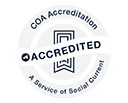Substance Abuse Services and Assistance
Alcohol and other drug addictions are chronic, but treatable, brain disorders that affect nearly one million Illinoisans. People who are addicted cannot control their need for alcohol or other drugs, even in the face of negative health, social or legal consequences. This lack of control is the result of alcohol or drug induced changes in the brain. Those changes, in turn cause behavior changes.
Those who regularly use alcohol and/or other drugs may not realize how their behavior can interfere with their ability to parent and greatly increase the likelihood of accidents and injury to themselves and their children.
A parent tired and worn out from drug or alcohol use has little ability to praise or offer guidance and appropriate discipline to a child. Under the influence of drugs or alcohol, parents may not be able to respond to active, curious children who may put themselves in risky situations. And the stress of withdrawal increases the likelihood of a parent neglecting or harming the child.
A parent who is craving drugs or coming down from a high cannot help his or her children with their homework. They may also expect older children to help younger siblings, failing to recognize that children need adult help. Some parents who use drugs have older children stay home from school “to watch the younger children.” This interferes with the older child’s education and puts them further and further behind in school.
Finally, when parents use substances, their cravings may cause them to use essential money needed for diapers and food on drugs.
Need help or want to know more?
The Illinois Department of Human Services, Division of Alcoholism and Substance Abuse (DHS/DASA) provides funding for alcohol and other drug abuse treatment services for pregnant women and women with children, youth, those receiving TANF funds and those at risk of or infected with HIV; as well as counseling and early intervention services to individuals with gambling disorders.
DHS/DASA also provides services to individuals with active DCFS cases. Individuals are screened and referred by DCFS offices and local service providers. Treatment providers work with DCFS staff to bring patients into the treatment process, and when needed, provide transportation for patients and/or their children to child care so they may attend treatment.
The overall goals of the DASA/DCFS Initiative include:
- Improved health and safety of the child(ren) and mother.
- Improved parenting skills.
- Improved family functioning.
- Reduced substance abuse.
- Improved life management skills of the mother.
DHS also offers treatment services for alcoholism and addiction through an extensive treatment provider network throughout the state of Illinois.
Recreational cannabis
Recreational cannabis is legal in the state of Illinois. Learn about the guidelines for foster homes, day care facilities and child welfare agencies.
Methadone
If you have been prescribed methadone by your physician, it is extremely important that you store it out of the reach of children. Read the Practice Methadone Safety brochure in English, Spanish and Hakka Chinese for more information.


 312-814-6800
312-814-6800